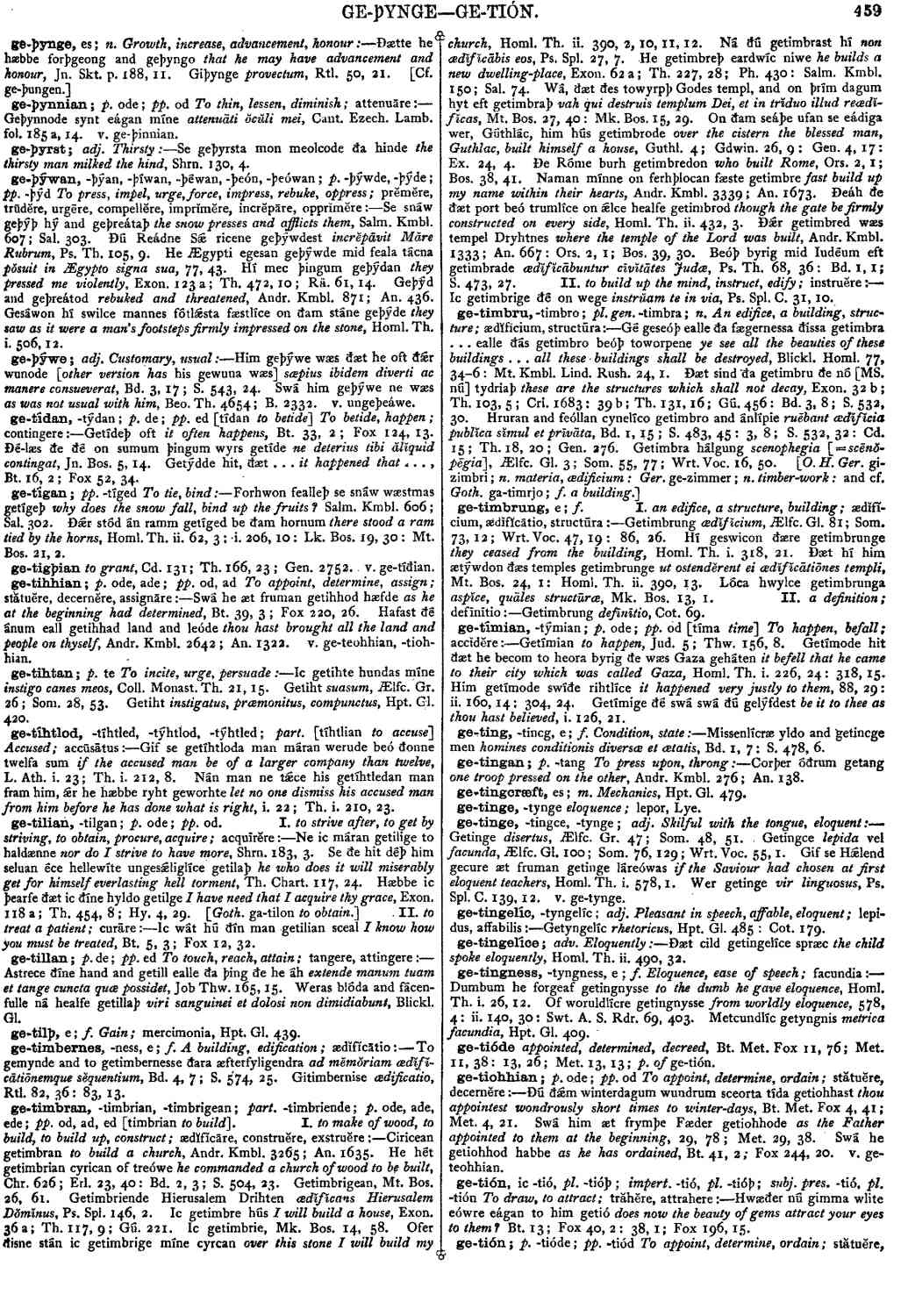ge-þýwan
- verb [ weak ]
-
Se snáw geþýþ hý and geþreátaþ
the snow presses and afflicts them,
- Salm. Kmbl. 607; Sal. 303.
-
Ðú Reádne Sǽ ricene geþýwdest
incrĕpāvit Măre Rubrum,
- Ps. Th. 105, 9.
-
He Ægypti egesan geþýwde mid feala tácna
pŏsuit in Ægypto signa sua,
- 77, 43.
-
Hí mec þingum geþýdan
they pressed me violently,
- Exon. 123 a; Th. 472, 10; Rä. 61, 14.
-
Geþýd and geþreátod
rebuked and threatened,
- Andr. Kmbl. 871; An. 436.
-
Gesáwon hí swilce mannes fótlǽsta fæstlíce on ðam stáne geþýde
they saw as it were a man's footsteps firmly impressed on the stone,
- Homl. Th. i. 506, 12.
Bosworth, Joseph. “ge-þýwan.” In An Anglo-Saxon Dictionary Online, edited by Thomas Northcote Toller, Christ Sean, and Ondřej Tichy. Prague: Faculty of Arts, Charles University, 2014. https://bosworthtoller.com/16567.
Checked: 0